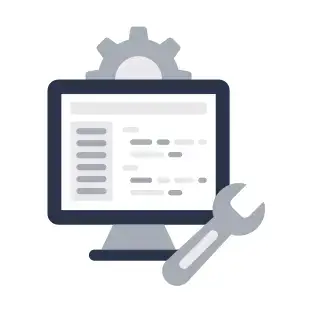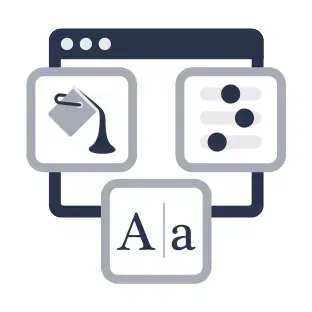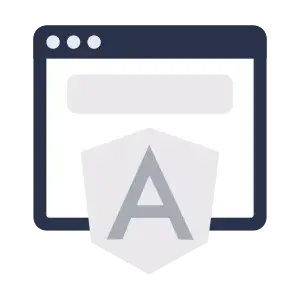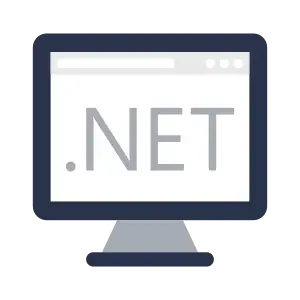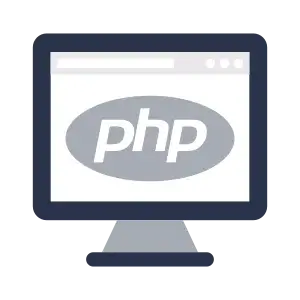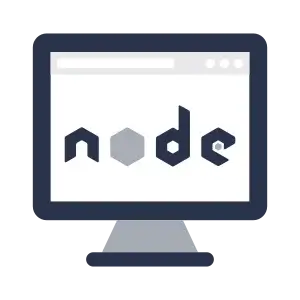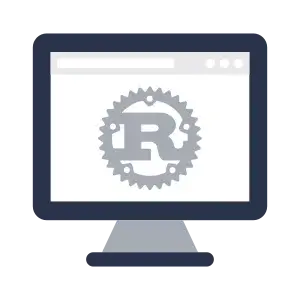Node.js App Development: Everything You Need to Know

98% of Fortune 500 companies use Node.js to develop network applications they can easily scale to align with growth and user behavior. It is an open-source cross-platform JavaScript runtime environment that has taken app development to the next level, allowing platforms to scale their applications in real time with dynamic features.
Some of the most popular brands in the world have utilized Node.js to develop their servers and applications, including NASA, PayPal, Netflix, and Walmart. What makes it so attractive to businesses is its scalability and speed, empowering businesses to develop secure and high-performing cross-platform applications designed to fit the ever-changing needs of today’s users.
Avenvis offers Node.js development services to elevate your tech projects with the latest technological solutions to deliver top-tier results and enhance performance. We’ve worked with over 40 Node.js developers on more than 100 projects, merging state-of-the-art technology with innovative techniques. Find out more about our Node.js app development process here.
What is Node.js?
Node.js operates on Chrome’s V8 JavaScript engine, allowing it to perform at a high level, and is written in C/C++ and JavaScript. Most developers use it for server-side applications, including incorporating JavaScript programming into backend operations on OS X, Linux, and Windows.
It runs in a single process and does not create new threads for each request, providing a set of asynchronous 1/0 primitives in its standard library and preventing JavaScript code from blocking. Most Node.js app developers write using non-blocking paradigms.
Is It a Framework?
It’s a common misconception that Node.js is a framework. It’s a JavaScript runtime environment for communicating and executing code within an operating system. Node.js is designed to execute code in Chrome, running JavaScript code to provide just-in-time compilation. It is more than just a framework and utilizes several frameworks, including Sails, Express, and Meteor.
It accesses a filesystem or database, instead of blocking, resuming operations when a response returns. This operating system allows Node.js to manage thoughts of connections concurrently from a single server without burdening the system or resulting in application bugs.
What Operating Systems Do Node.js Support?
Node.js can run on macOS and Windows, along with Docker and Linux. Most personal computers can run Node.js’s operating systems. You can find full instructions for downloading and installing Node here.
Why Fortune 500 Companies Use Node.js App Development

Some of the most utilized websites and applications run on Node.js, including PayPal, Netflix, Microsoft, LinkedIn, and NASA. These multi-national brands have leveraged Node.js to create one central database storage point to reduce data access time by 300% and app start-up time by 70%.
Data-intensive enterprise app development projects are ideal candidates for utilizing Node.js as its backend can manage multiple simultaneous connections to offer a seamless user experience. It is now the most widely used web development tool in the United States, with over 6 million websites running Node.js.
App Development Features
Five core features make Node.js one of the most attractive open-source and cross-platform JavaScript runtime environments for app development.
I/O Event Functions
It offers a programming paradigm where I/O actions become triggered in response to user and program events, including software errors or file download completion. These I/O functions are triggered when a call-back is executed in response to these events using ‘EventEmitter’. It provides a line of communication between objects and facilitates event triggered I/O functions.
This feature addresses the pain point of single threads in I/O processes and provides scalability for websites and applications. It maximizes efficiency to run multiple applications, including real-time chat and collaborative features, without disruption or lags.
Open-Source NPM Registry
Take advantage of tried and tested ecosystem packages and coding modules with over 1.3 million ready-to-use solutions available through the open-source NPM Registry. These third-party tools and coding modules accelerate build time by streamlining the development process to reduce costs. The enterprise version of NPM provides privacy packages designed for websites with higher traffic levels.
Compatibility
Node.js offers multiple-platform compatibility to make it one of the most versatile backend development systems. This architecture offers flexibility across devices without needing further investment or additional resources. It enables applications and websites to be configured to operate across Android, Mac, Windows, and iOS to support scalability and wider launch capacity.
Asynchronous Programming and Callbacks
Node.js allows developers to utilize JavaScript Asynchronous programming and callbacks to respond to user requests with a single database point. This asynchronous model facilitates multiple interactions occurring simultaneously without causing disruptions.
Non-blocking I/O Model
What makes it unique is its non-blocking I/O module, which facilitates single-process multi-tasking using non-blocking commands in the event loop. This model drastically reduces wait time for response operations and allows other tasks of continue running concurrently in the background.
When an operation is completed, a call back is used to notify the system. It allows task delegation to support continued code processing in the event loop. Node.js’ non-blocking I/O model is crucial to its operating system and is the backbone to its performance optimization.
Case Studies of Node.js App Development
eBay, GoDaddy, LinkedIn, Walmart, Uber, and Trello are just a few of the global companies harnessing the potential of Node.js app development to expand their digital reach. We’re looking at two companies and how they used Node.js to scale their business growth.
- Netflix
Node.js supported Netflix’s infrastructure in handling high-volume traffic as the streaming platform experienced rapid growth following 2013. Netflix’s developers used Node.js to build the user interface of its app to ensure seamless operations and quick responsiveness.
LinkedIn is the most popular professional networking platform in the world. After its acquisition by Microsoft, the platform switched from ‘Ruby on Rails’ to Node.js asynchronous model to ensure performance efficiency and scalability. LinkedIn’s investment enabled it to reduce its 30 servers to just 3, double its traffic capacity with reduced memory overhead.
Start Your Node.js Development with Avenvis
Avenvis is an industry leader in Node.js development, providing custom and cost-effective solutions with seamless integration and user-centered designs. We strive to offer high-caliber development while ensuring affordability for start-ups and scaling companies with continuous technical support. Find out more about our Node.js app development services by scheduling a free consultation.


